We may not have the course you’re looking for. If you enquire or give us a call on 01344203999 and speak to our training experts, we may still be able to help with your training requirements.
Training Outcomes Within Your Budget!
We ensure quality, budget-alignment, and timely delivery by our expert instructors.
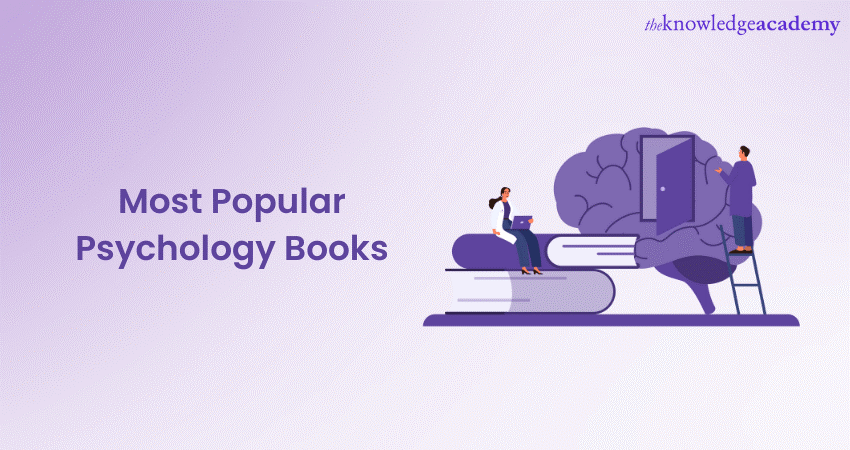
Psychology is a fascinating field that offers profound insights into various aspects of our lives and provides valuable knowledge. This knowledge is applicable to our personal growth, relationships and understanding of human nature. To gain this understanding Psychology Books work as a vital part of this field as they elaborate on the complexities of the human mind and behaviour.
So, if you are fascinated by the working of human mind or someone simply interested in expanding your understanding of psychology, this blog covers some extremely popular Books in Psychology you might like. Check out this blog, and unearth the essential insights of psychology through our curated list of 26 most popular books. Cover various fields, like: clinical, social, cognitive, etc.
Table of Contents
1) Importance of Psychology Books
2) Best Psychology Books to add to your reading list
a) Influence: The Psychology of Persuasion
b) Thinking, Fast and Slow
c) Man's Search for Meaning
d) The Power of Now
e) Flow: The Psychology of Optimal Experience
f) Quiet: The Power of Introverts in a World That Can't Stop Talking
g) Blink: The Power of Thinking Without Thinking
h) Emotional Intelligence
i) Sapiens: A Brief History of Humankind
j) The 7 Habits of Highly Effective People
3) Conclusion
Importance of Psychology Books
Psychology Books play a crucial role in your understanding of the human mind and behaviour, making them invaluable resources for mental well-being and aspiring Psychologists. These books provide a wealth of knowledge, research, and insights into various psychological concepts, theories, and therapeutic approaches. Here are some vital points that make these Books important:
a) Self-discovery: They contribute to your understanding of yourselves and others, shedding light on the intricacies of human experience. They also offer guidance for personal growth and healing. For individuals seeking mental well-being, Psychology Books can work as empowering tools. It is because they provide valuable information about common mental health issues, such as anxiety, depression, and stress, offering strategies for coping and improving overall well-being.
b) Self-reflection: Psychology Books also promote self-reflection, helping readers understand their emotions, thoughts, and behaviours. Thus, they provide tools to cultivate self-awareness and personal growth. These books are particularly important for aspiring Psychologists because they serve as a foundation for their education and professional development.
c) Acquiring knowledge: These Books introduce aspiring psychologists to various psychological theories, research methodologies, and evidence-based practices. Reading these Books allows aspiring Psychologists to comprehensively understand the field, its history, and the influential figures who have shaped it.
d) Staying updated: Psychology Books also inspire aspiring Psychologists to delve deeper into their areas of interest. These Books cover various fields, such as clinical psychology, social psychology, and cognitive psychology, offering a wealth of information and case studies that help aspiring psychologists develop a nuanced understanding of specific topics.
Best Psychology Books to add to your reading list
Psychology Books can help aspiring Psychologists stay updated with the latest research and advancements in the field. They provide a platform for ongoing learning, ensuring aspiring psychologists remain well-equipped to address their clients' complex and evolving needs.
There are many books which are a vital resource for aspiring Psychologists while also playing a vital role in promoting mental health. They offer insights into the human mind, provide strategies for personal growth, and serve as a foundation for education and professional development.
Here is a list of Psychology Books which can aid you in gaining a deeper understanding of yourself and developing essential skills for well-being:
1) Influence: The Psychology of Persuasion
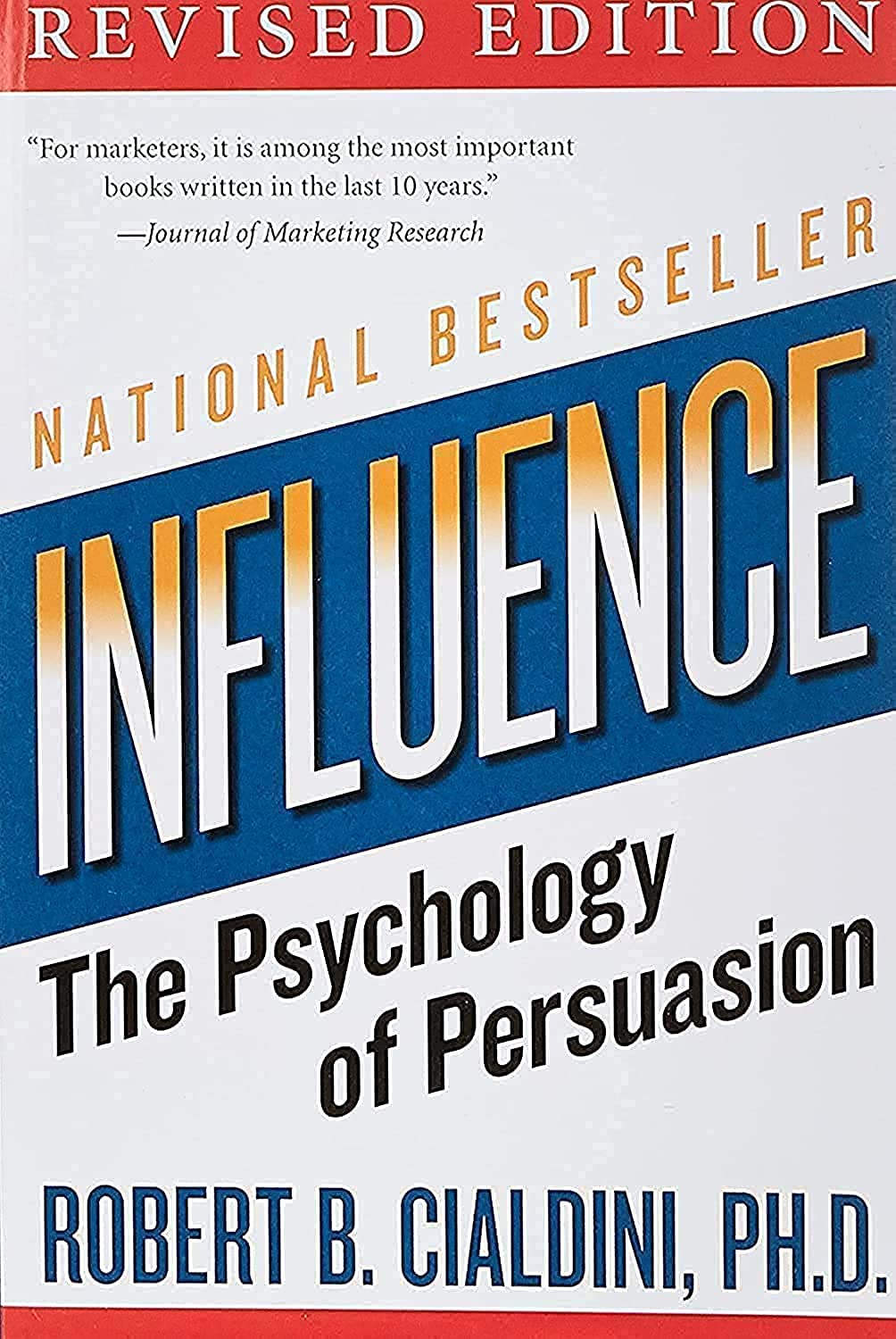
The book “Influence” by Robert Cialdini is a groundbreaking book exploring persuasion's principles and techniques. Cialdini delves into the factors that influence one’s decision-making process and reveals the subtle ways in which people are persuaded.
Cialdini’s work introduces the six universal principles of influence: reciprocity, consistency, social proof, liking, authority, and scarcity. He demonstrates how these principles are applied in real-world situations through relatable examples and experiments.
The book emphasises the importance of ethical persuasion and provides readers with valuable insights to defend against manipulation and make more informed choices. “Influence” the book, is a timeless resource for anyone seeking to understand the power of persuasion and its impact on your everyday life.
2) Thinking, Fast and Slow
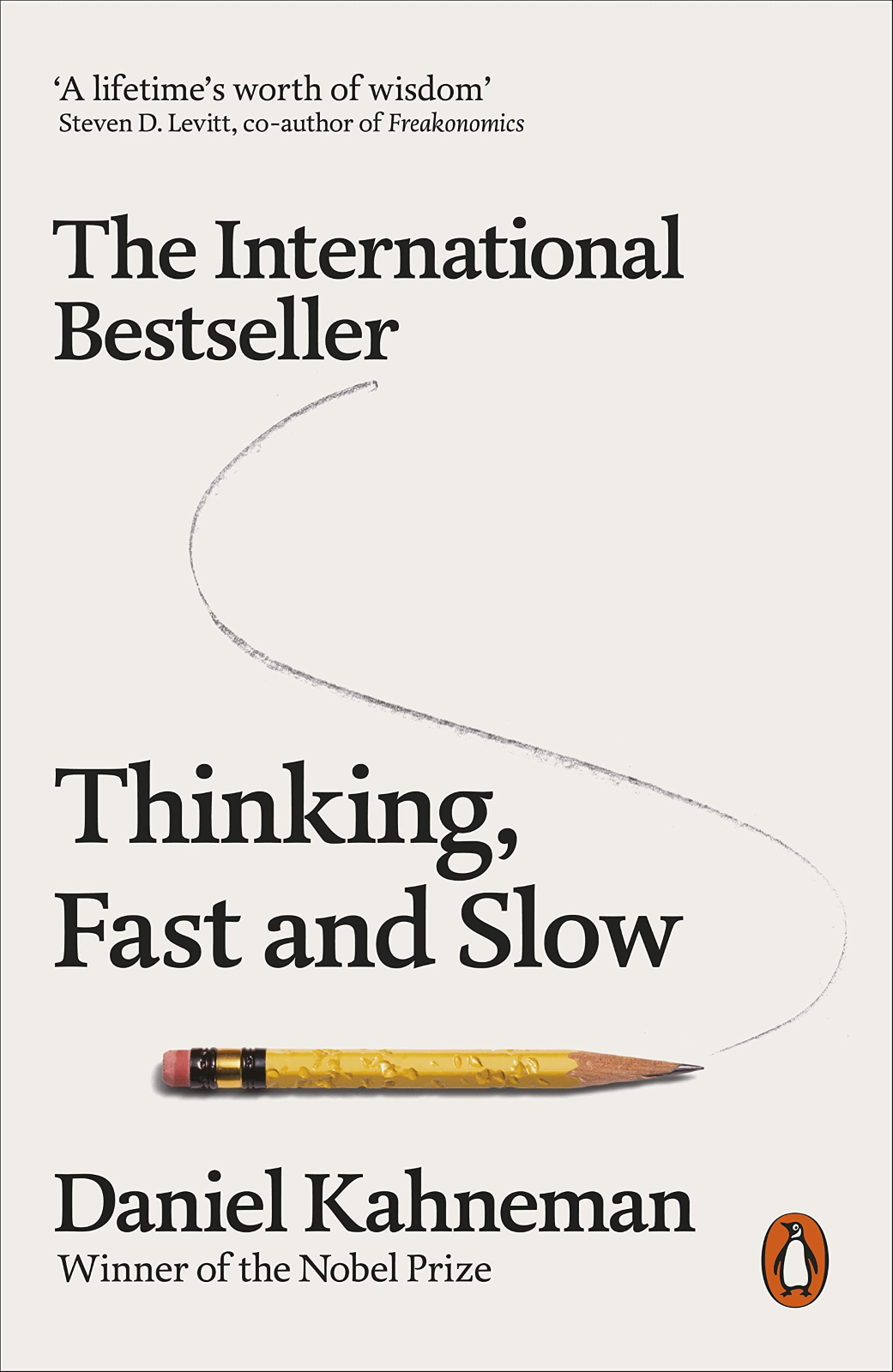
This book by Daniel Kahneman explores the two systems of thinking that drive decisions. Kahneman presents research on cognitive biases and provides strategies to improve decision-making skills. He highlights the distinction between intuitive and deliberate thinking, challenging your assumptions about rationality.
The book delves into various cognitive biases and heuristics that affect your judgment. Kahneman also offers practical techniques to overcome these biases and make more informed choices.
Through engaging examples and thought-provoking insights, “Thinking, Fast and Slow” revolutionises your understanding of decision-making processes and prompts the readers to critically evaluate your own thinking patterns.
Kahneman comprehensively explores the human mind and the factors influencing one’s choices. This resource is great for anyone who wants to improve their decision-making skills and better understand how the human mind works.
Interested in Psychology? Try our Introduction to Psychology of Personality Course!
3) Man's Search for Meaning
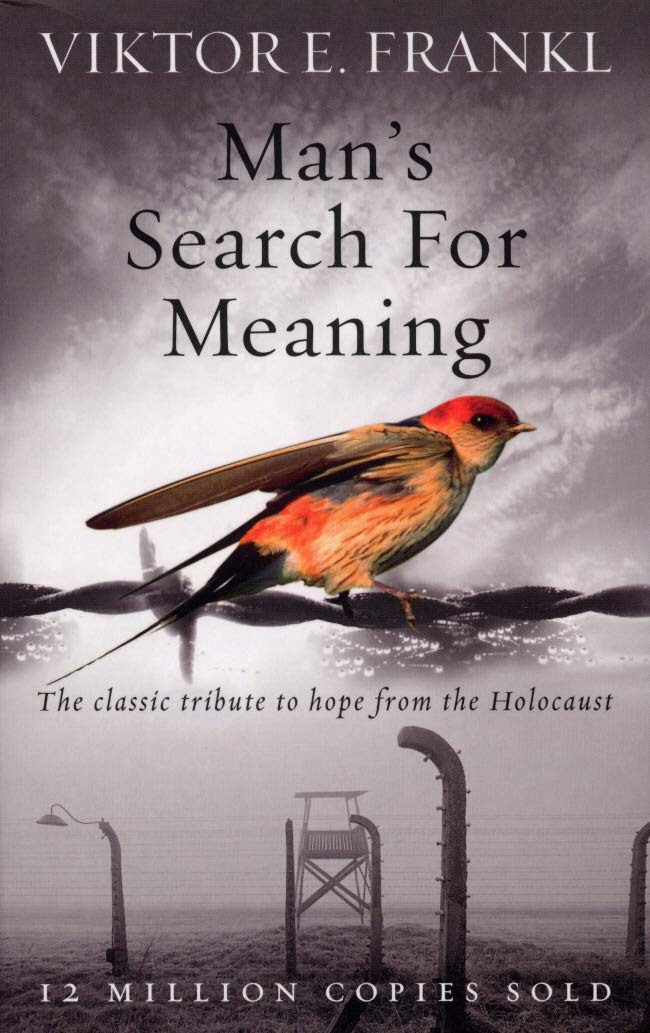
This book by Viktor E. Frankl is a profound exploration of the human search for purpose and significance. Based on his experiences as a Holocaust survivor and Psychiatrist, Frankl offers insights into finding meaning even in the most challenging circumstances.
The book highlights the importance of embracing personal responsibility and creating meaning in a person's life. Frankl’s approach, known as Logotherapy, focuses on pursuing meaning rather than happiness.Through poignant anecdotes and thought-provoking reflections, “Man’s Search for Meaning” invites readers to contemplate the deeper purpose of their existence and discover sources of resilience and hope.
Frankl’s work has had a profound impact on individuals around the world, offering guidance and inspiration in navigating the complexities of life. “Man’s Search for Meaning” remains a timeless masterpiece that encourages readers to reflect on their own values and embrace the power of meaning in their lives.
4) The Power of Now
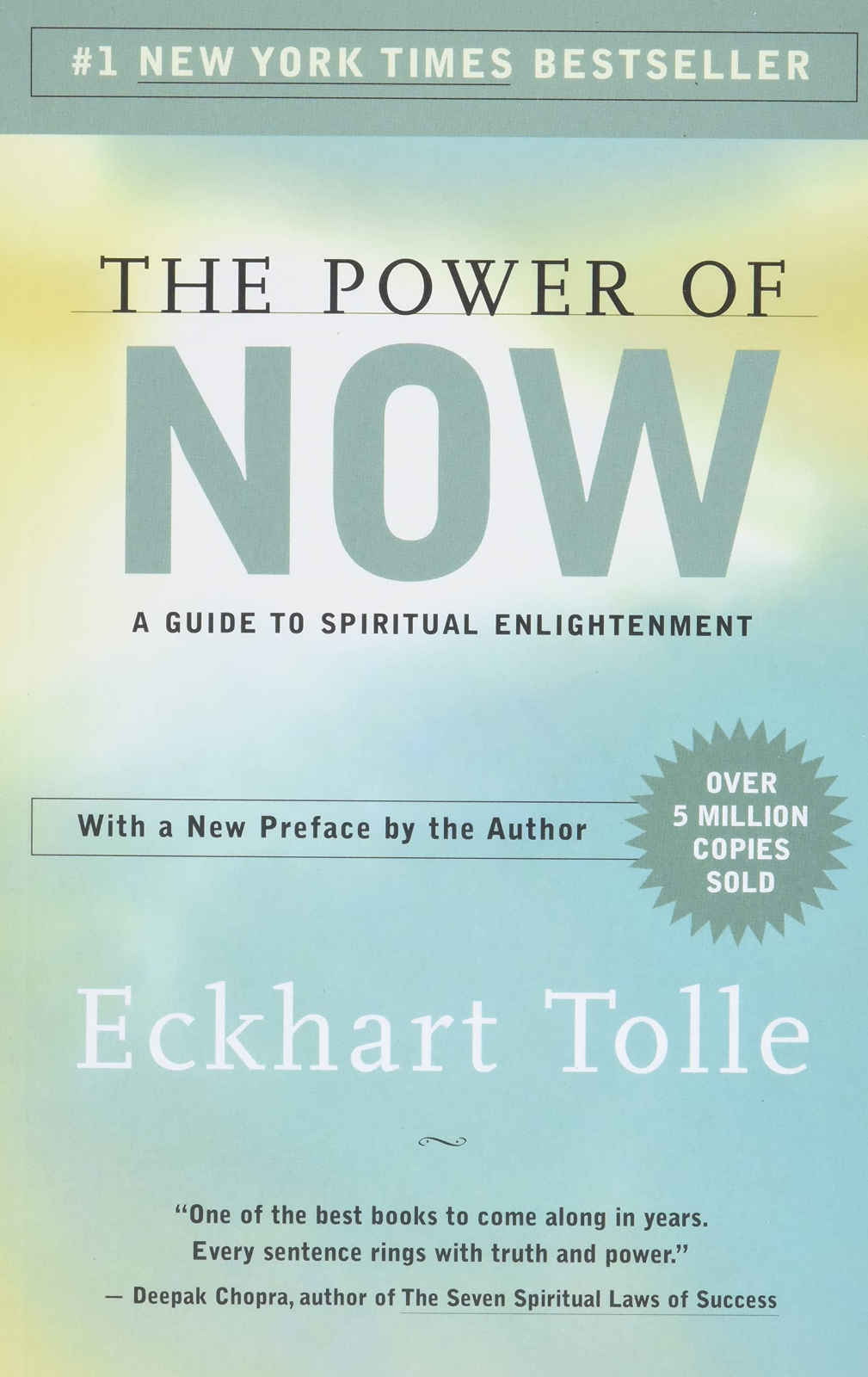
“The Power of Now” by Eckhart Tolle is a spiritual guide emphasising the importance of living in the present moment. Tolle offers insights on transcending the limitations of the mind and finding inner peace and fulfilment.
The book explores the concept of ego and its contribution to human suffering. Tolle encourages readers to let go of past regrets and future worries and instead focus on the present moment as the only true reality. Through practical exercises and teachings, Tolle provides a pathway to awakening and a deeper sense of self-awareness.
“The Power of Now” has resonated with millions of readers and has the potential to transform one’s perspective on life. Tolle’s gentle and compassionate tone makes this book accessible to readers of all backgrounds. It guides them toward a state of presence and contentment amid life’s challenges.
Understand mental disorders and their effect on people with our Psychology Masterclass!
5) Flow: The Psychology of Optimal Experience
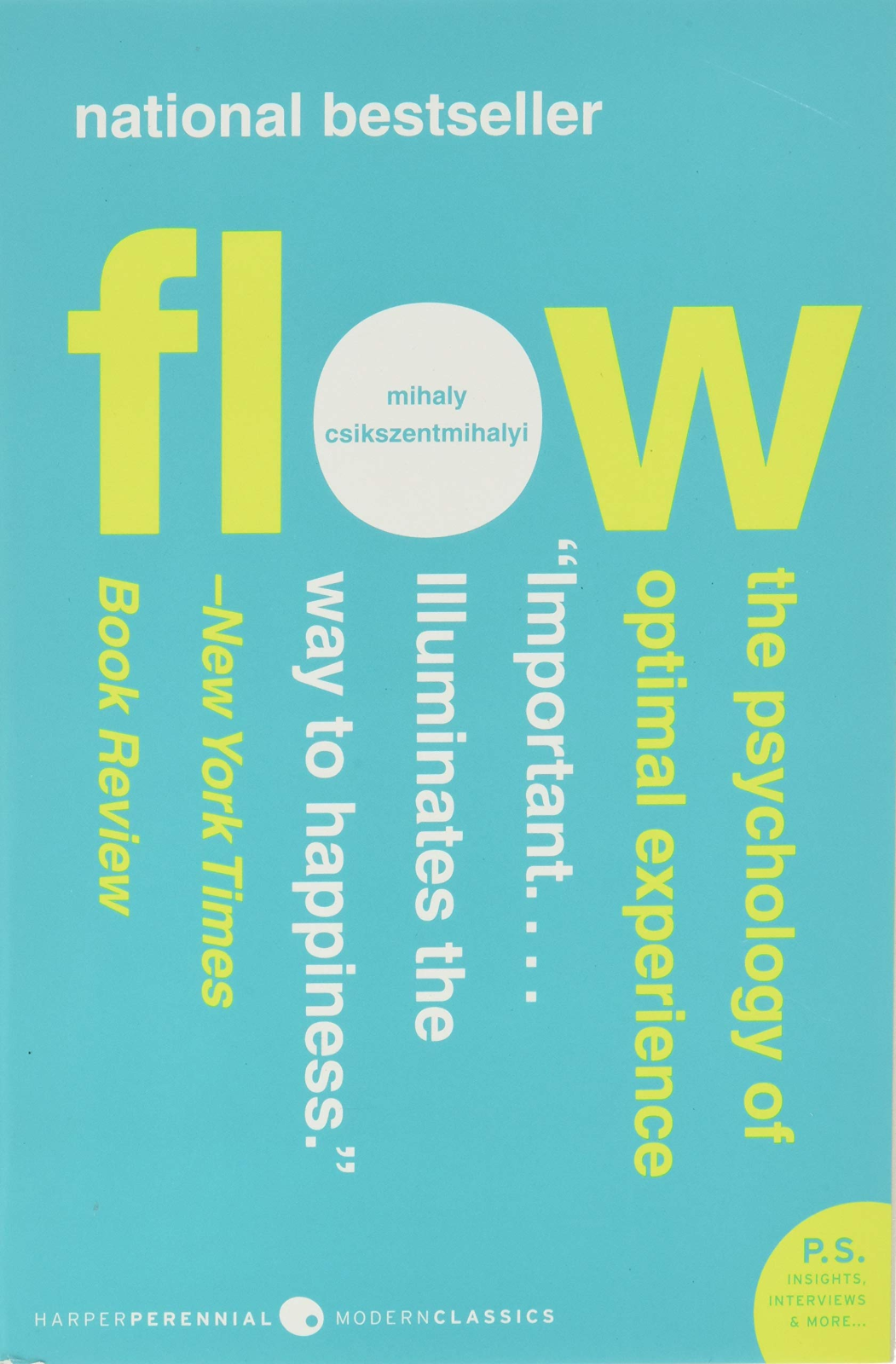
The book “Flow” by Mihaly Csikszentmihalyi iterates the concept of flow, a state of complete immersion and focus on an activity. Csikszentmihalyi delves into the conditions necessary for experiencing flow and its profound impact on your well-being.
The book provides practical guidance for cultivating flow in various aspects of life, such as work, hobbies, and relationships. Csikszentmihalyi’s research and examples shed light on the benefits of fully engaging in the present moment and the potential for personal growth and fulfilment through flow.
“Flow: The Psychology of Optimal Experience” serves as a roadmap for individuals seeking to enhance their experiences and find greater satisfaction in their everyday lives. Csikszentmihalyi’s work inspires readers to pursue activities that bring them joy, challenge, and a sense of meaning.
6) Quiet: The Power of Introverts in a World That Can't Stop Talking
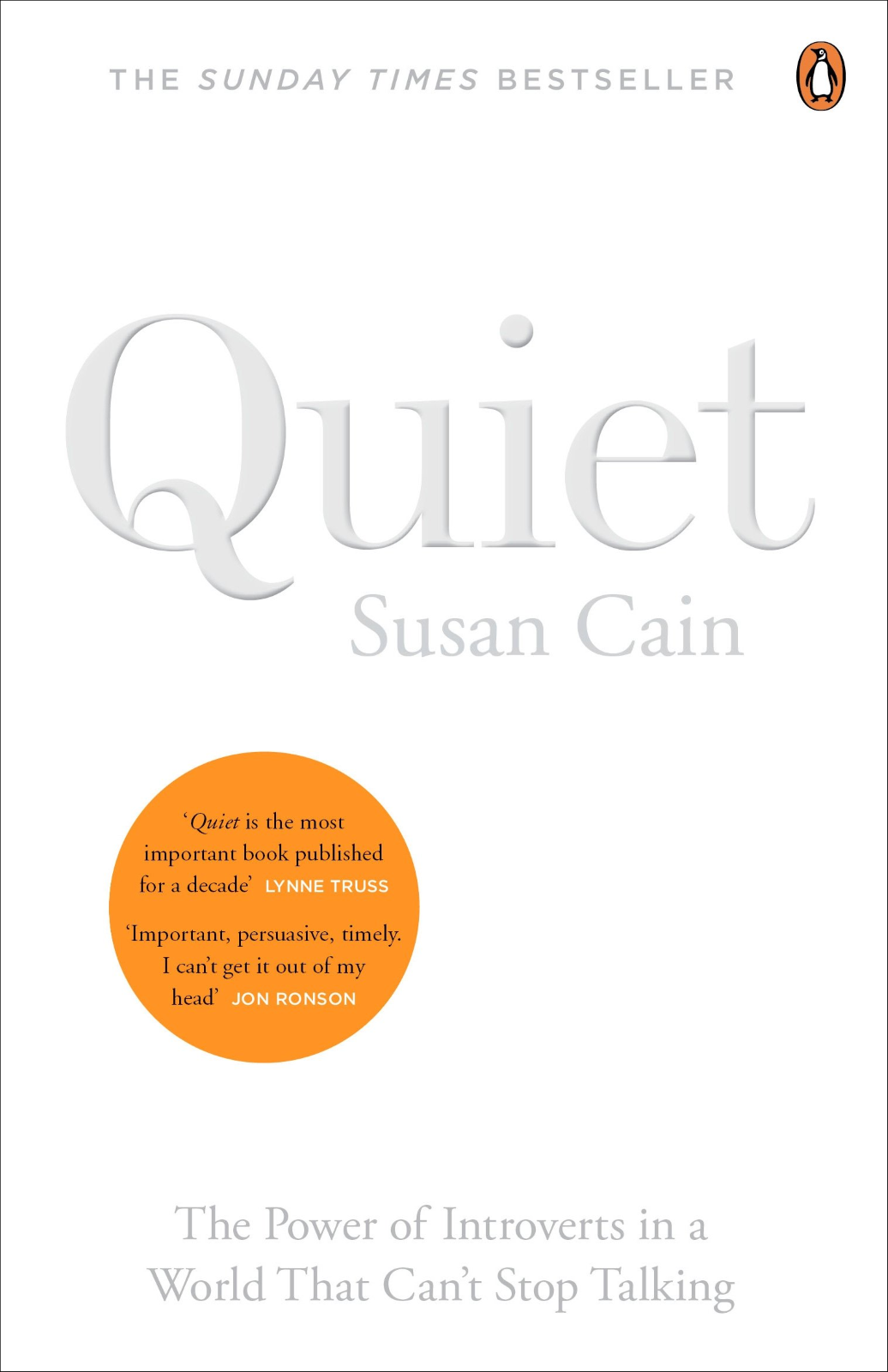
The book “Quiet” by Susan Cain celebrates the strengths of introverts in a society that often favours extroversion. Cain challenges misconceptions about introversion and provides insights on how introverts can thrive in various domains.
The book explores the benefits of solitude, deep thinking, and the power of introverted contributions to creativity and innovation. Cain offers practical advice for introverts and strategies for creating environments honouring introverted individuals.
“Quiet” is an empowering read for introverts and extroverts, fostering a more inclusive and balanced approach to human interaction. Cain’s research and personal anecdotes shed light on the unique qualities of introverts and encourage readers to embrace their introversion or appreciate the strengths of introverted individuals around them.
Learn the power of positive emotions with our Positive Psychology Masterclass!
7) Blink: The Power of Thinking Without Thinking
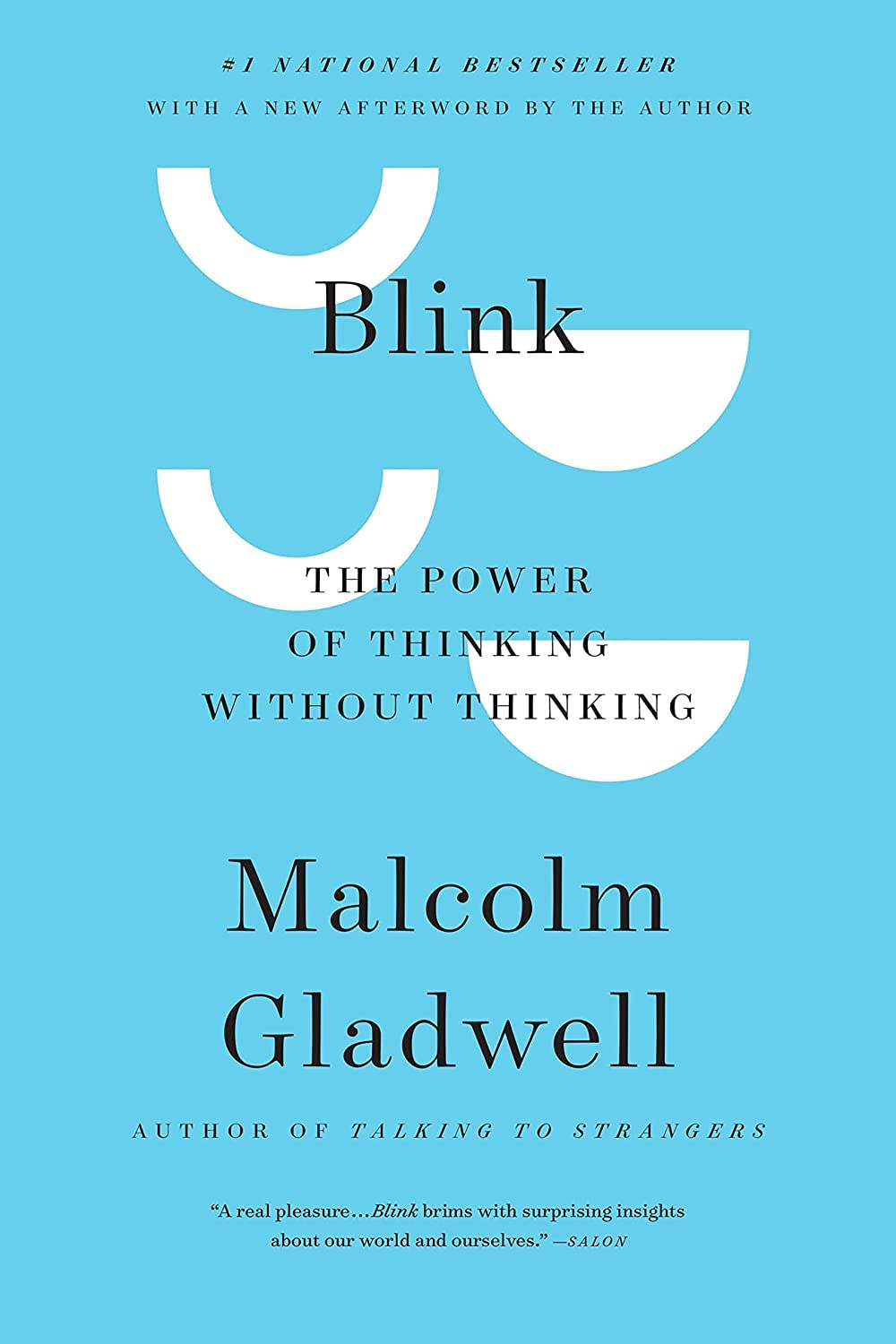
The book “Blink” by Malcolm Gladwell examines the power of intuition and quick decision-making. Gladwell explores the unconscious processes that guide one's snap judgments and reveals when you can trust your instincts.
The book introduces the concept of “thin slicing,” the ability to make accurate and rapid assessments based on limited information. Gladwell examines various examples, such as expert judgment, first impressions, and the adaptive unconscious, to illustrate the potential of rapid cognition.
“Blink” challenges the notion that deliberate and conscious decision-making is always superior, shedding light on the remarkable abilities of your subconscious mind. With its engaging storytelling and thought-provoking insights, this book provides a fresh perspective on the power of your intuition and its impact on your daily life.
8) Emotional Intelligence
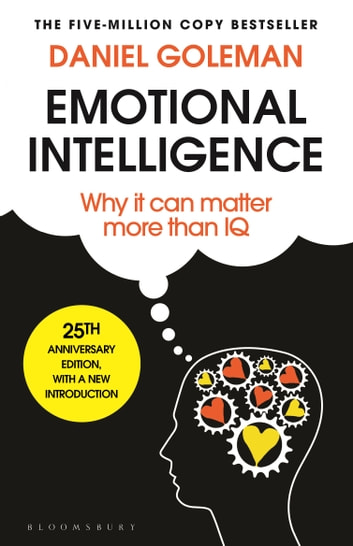
“Emotional Intelligence” by Daniel Goleman popularised the concept and importance of emotional intelligence. Goleman explores the five components of emotional intelligence: self-awareness, self-regulation, motivation, empathy, and social skills. The book emphasises the significance of emotional intelligence in personal and professional contexts, showing how it can enhance leadership, communication, and overall well-being.
Through practical exercises and insights, “Emotional Intelligence” provides readers with tools to develop their emotional intelligence and navigate their emotions more effectively. The book by Goleman is an excellent resource for those who want to improve their interpersonal skills and build meaningful relationships with others. Goleman's writing style is easy to understand and accessible, making it a valuable tool for anyone seeking to enhance their communication abilities.
Learn how to prevent stress with our Prevention Psychology Training!
9) Sapiens: A Brief History of Humankind
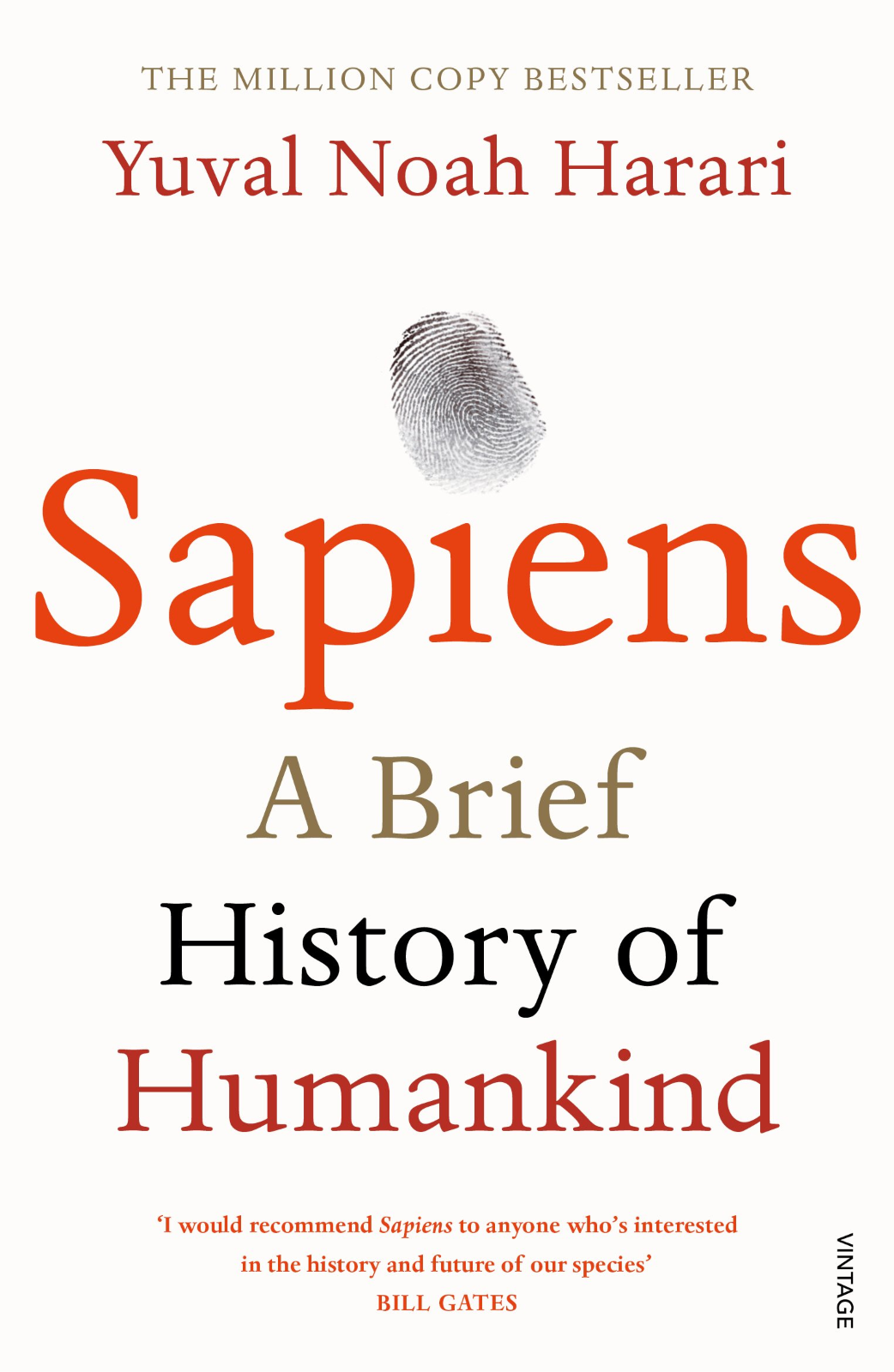
The book “Sapiens” by Yuval Noah Harari takes readers on a captivating journey through the history of the human species. Harari explores the cognitive, agricultural, and scientific revolutions that shaped human society. The book delves into the evolution of Homo sapiens and the impact of your collective imagination on the world.
Harari offers thought-provoking perspectives on topics such as religion, politics, and the future of humanity. “Sapiens” challenges conventional narratives and invites readers to contemplate the big questions about a person’s existence. The book provides a broad understanding of human history and serves as a platform for reflecting on a person’s place in the world.
Harari’s engaging writing style and ability to distil complex ideas make this book a fascinating read for both history enthusiasts and those interested in the human condition.
10) The 7 Habits of Highly Effective People

This book by Stephen R. Covey presents a holistic approach to personal and professional effectiveness. Covey offers practical advice and timeless principles for personal growth and success. The book outlines seven habits that are essential for achieving effectiveness.
In order to be successful, it's important to develop certain habits. These habits include the following:
a) Taking the initiative
b) Startingwith a clear goal in mind
c) Prioritising important tasks
d) Striving for mutual benefits
e) Active listening
f) Seeking to understand others
g) Working collaboratively
h) Consistently improving oneself
Covey provides actionable steps and insightful anecdotes to illustrate each habit and its application in different aspects of life. This book has become a classic in the self-help genre, empowering readers to take control of their lives and become more proactive and purpose-driven. Covey’s principles continue to resonate with individuals seeking personal and professional transformation.
Try our Psychological Skills Training for Human Wellness Training today and learn how to conduct therapy sessions!
11) The Happiness Hypothesis: Finding Modern Truth in Ancient Wisdom
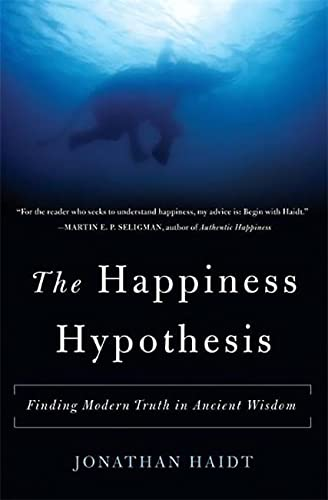
This book by Jonathan Haidt combines Psychology, Philosophy, and Neuroscience to explore the roots of happiness. Haidt offers practical insights based on ancient wisdom and scientific research. The book examines ten great ideas from various traditions and investigates their relevance to happiness in today’s world.
Haidt explores topics such as the pursuit of pleasure, the importance of relationships, and the significance of meaning and purpose. “The Happiness Hypothesis” encourages readers to reflect on their own values and beliefs and provides guidance on how to cultivate a more fulfilling and meaningful life. Haidt’s engaging writing style and ability to integrate diverse perspectives make this book a valuable resource for anyone seeking a deeper understanding of happiness.
12) The Tipping Point: How Little Things Can Make a Big Difference
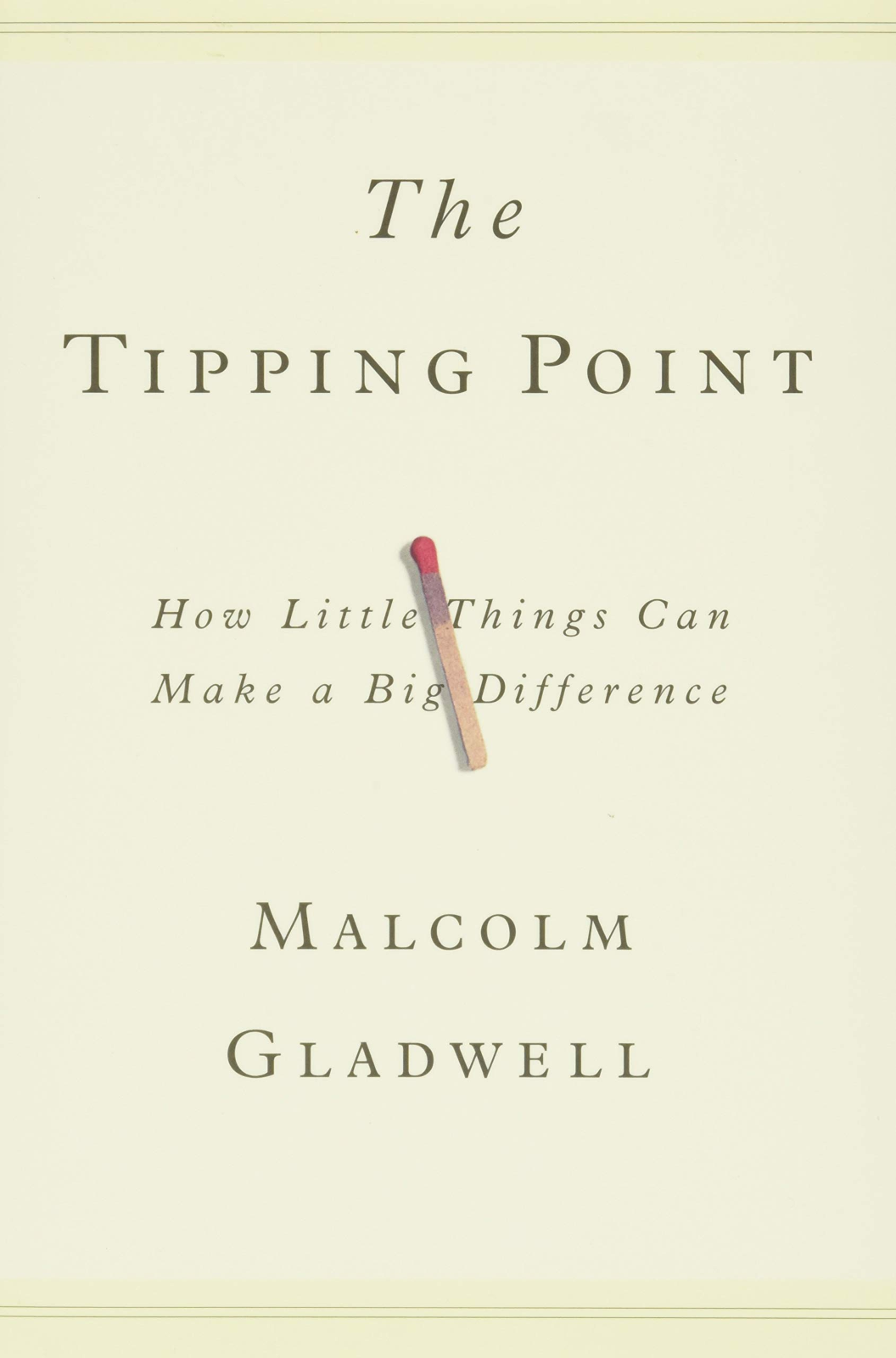
“The Tipping Point” by Malcolm Gladwell explores the factors that contribute to the sudden and widespread adoption of ideas, trends, and behaviours. Gladwell uncovers the social dynamics that drive significant changes in society. The book introduces the concept of the tipping point. It refers to the moment when a small change leads to a dramatic and irreversible shift.
Gladwell examines case studies and identifies three key factors contributing to the tipping point: the law of the few, the stickiness factor, and the power of context. Further, “The Tipping Point” explores how ideas and trends spread and offer insights into how individuals can influence social change. Gladwell’s engaging storytelling and thought-provoking analysis make this book both informative and enjoyable to read.
Try our Psychology of Behaviour at Work Training and learn how personal aspects can impact workplace behaviour!
13) Thinking in Bets: Making Smarter Decisions When You Don't Have All the Facts
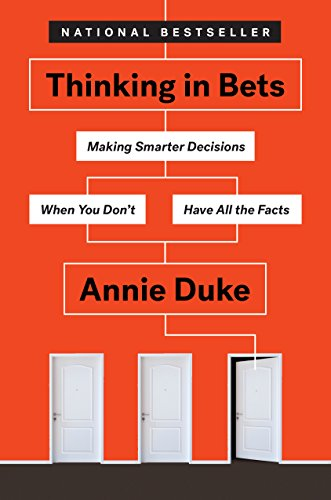
“Thinking in Bets” by Annie Duke examines decision-making through the lens of professional poker. Duke explores how probabilistic thinking and embracing uncertainty can lead to better decision-making in various domains. The book highlights the importance of understanding the difference between a good decision and a good outcome, as luck often influences outcomes.
Duke provides practical strategies for making decisions in an uncertain world, such as focusing on the process rather than the outcome, considering multiple perspectives, and embracing feedback. “Thinking in Bets” challenges readers to reevaluate their approach to decision-making and offers a fresh perspective on how to navigate complexity and ambiguity. Duke’s unique blend of personal anecdotes and poker insights makes this book a compelling and practical read.
14) Stumbling on Happiness
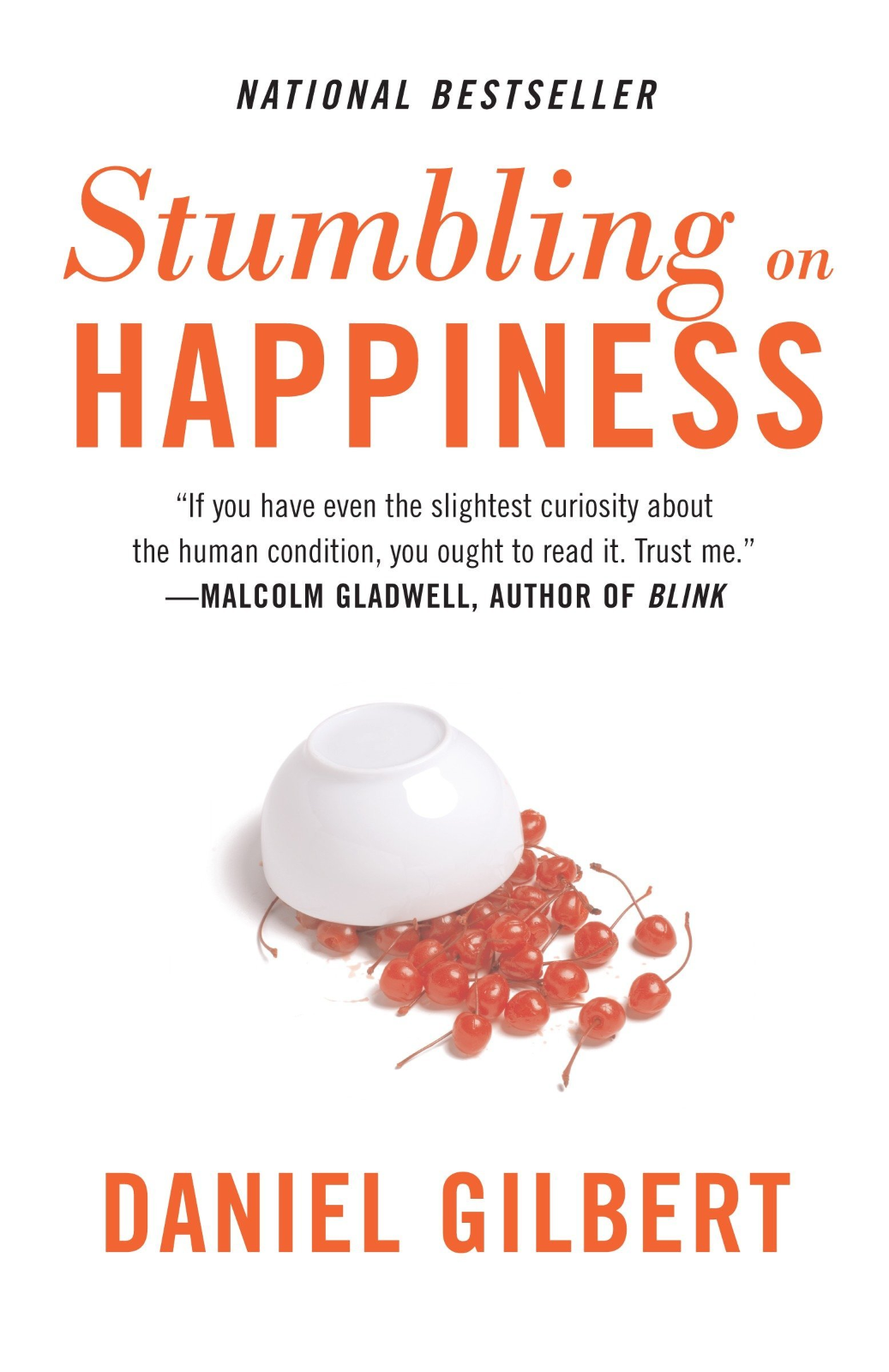
“Stumbling on Happiness” by Daniel Gilbert challenges your understanding of what makes us happy. Gilbert explores the cognitive biases that influence your perceptions of happiness and provides insights into finding true fulfilment. The book explores how mind imagines and anticipates future happiness, often leading to inaccuracies and misjudgements.
Gilbert uncovers the concept of affective forecasting and how it can lead to errors in predicting emotional responses. Through engaging anecdotes and scientific research, “Stumbling on Happiness” offers a thought-provoking exploration of the human quest for happiness and encourages readers to reflect on the nature of their own happiness. Gilbert’s witty and accessible writing style makes this book a delightful and enlightening read.
Learn the fundamentals of Psychology with Psychology of Personal Growth Training!
15) In the Realm of Hungry Ghosts: Close Encounters with Addiction
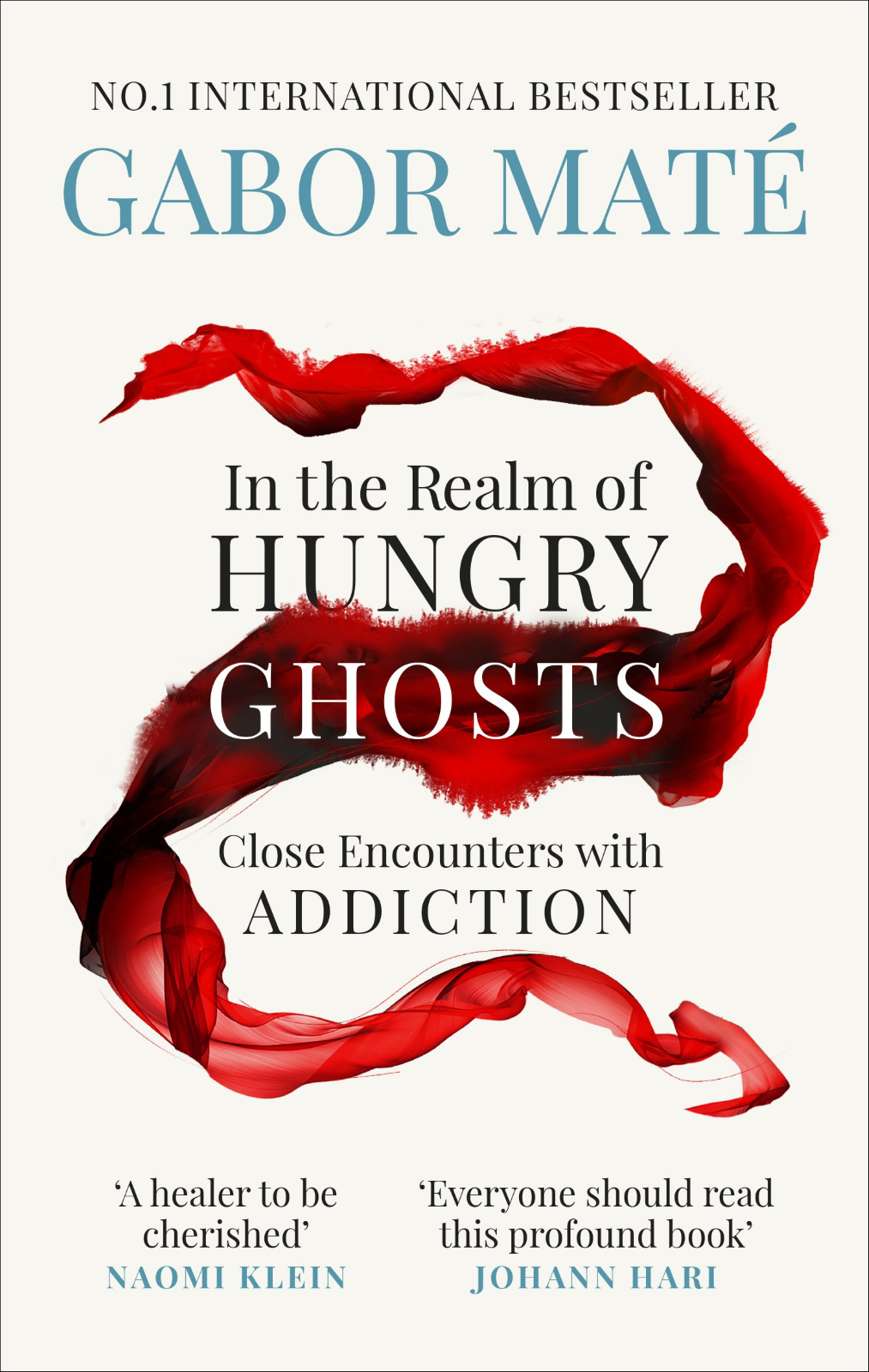
This book by Gabor Maté offers a compassionate exploration of addiction and its underlying causes. Maté draws on his experience as a physician working with individuals struggling with addiction and examines the psychological, social, and biological factors contributing to addictive behaviours.
The book challenges the conventional understanding of addiction as a moral failing and sheds light on the deep-rooted pain and trauma that often underlie substance abuse. Maté advocates for a compassionate and holistic approach to addiction, emphasising the importance of understanding and addressing individuals' underlying emotional and psychological needs. This book provides valuable insights into addiction and offers a fresh frame of mind on how to approach and support individuals on their journey to recovery.
16) The Man Who Mistook His Wife for a Hat
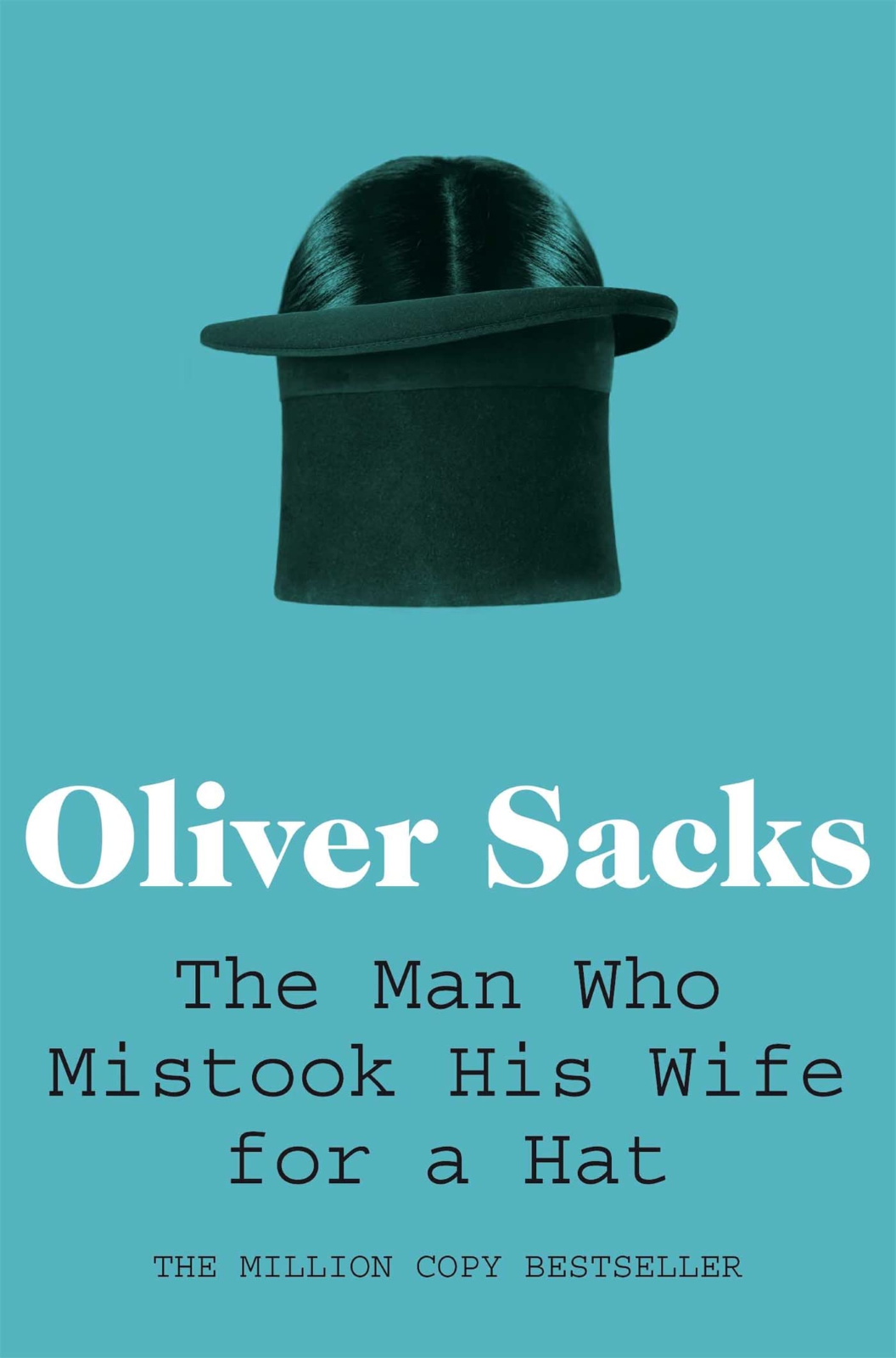
This book by Oliver Sacks is a collection of fascinating case studies exploring the human brain's complexities. Sacks, a renowned Neurologist, shares stories of individuals with neurological disorders and offers insights into the intricacies of perception, memory, and identity.
The book delves into the challenges faced by those living with neurological conditions and sheds light on the resilience and adaptability of the human mind. Sacks combine scientific rigour with a compassionate and humanistic approach. The writer paints a vivid picture of the diverse ways in which brain can function. “The Man Who Mistook His Wife for a Hat” invites readers to contemplate the mysteries of the mind and the profound impact of neurological conditions on human experience.
Develop an understanding of people’s mind and behaviour with our Social Psychology Training - join today!
17) Predictably Irrational: The Hidden Forces That Shape Our Decisions
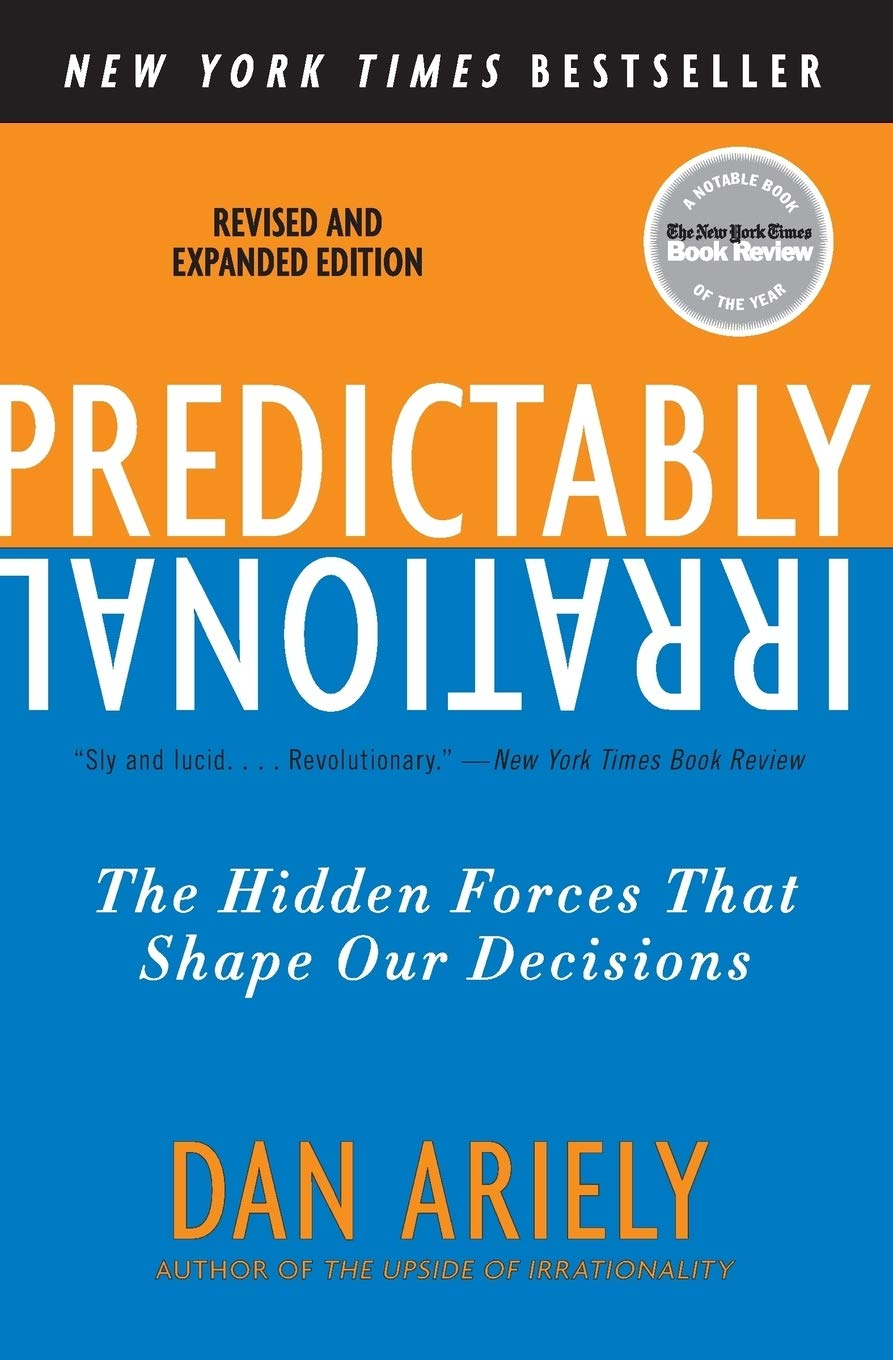
“Predictably Irrational” by Dan Ariely explores the quirks and biases influencing our decision-making processes. Ariely challenges the notion that humans are rational beings and provides evidence of the irrational and predictable patterns in their choices.
The book delves into topics such as the influence of social norms, the power of free offers, and the impact of emotions on decision-making. Through engaging experiments and real-life examples, Ariely reveals the hidden forces that shape individual’s decisions and offers insights into how theycan make more informed choices. “Predictably Irrational” is a thought-provoking exploration of human behaviour and provides valuable lessons for understanding decision-making tendencies.
18) Maps of Meaning: The Architecture of Belief
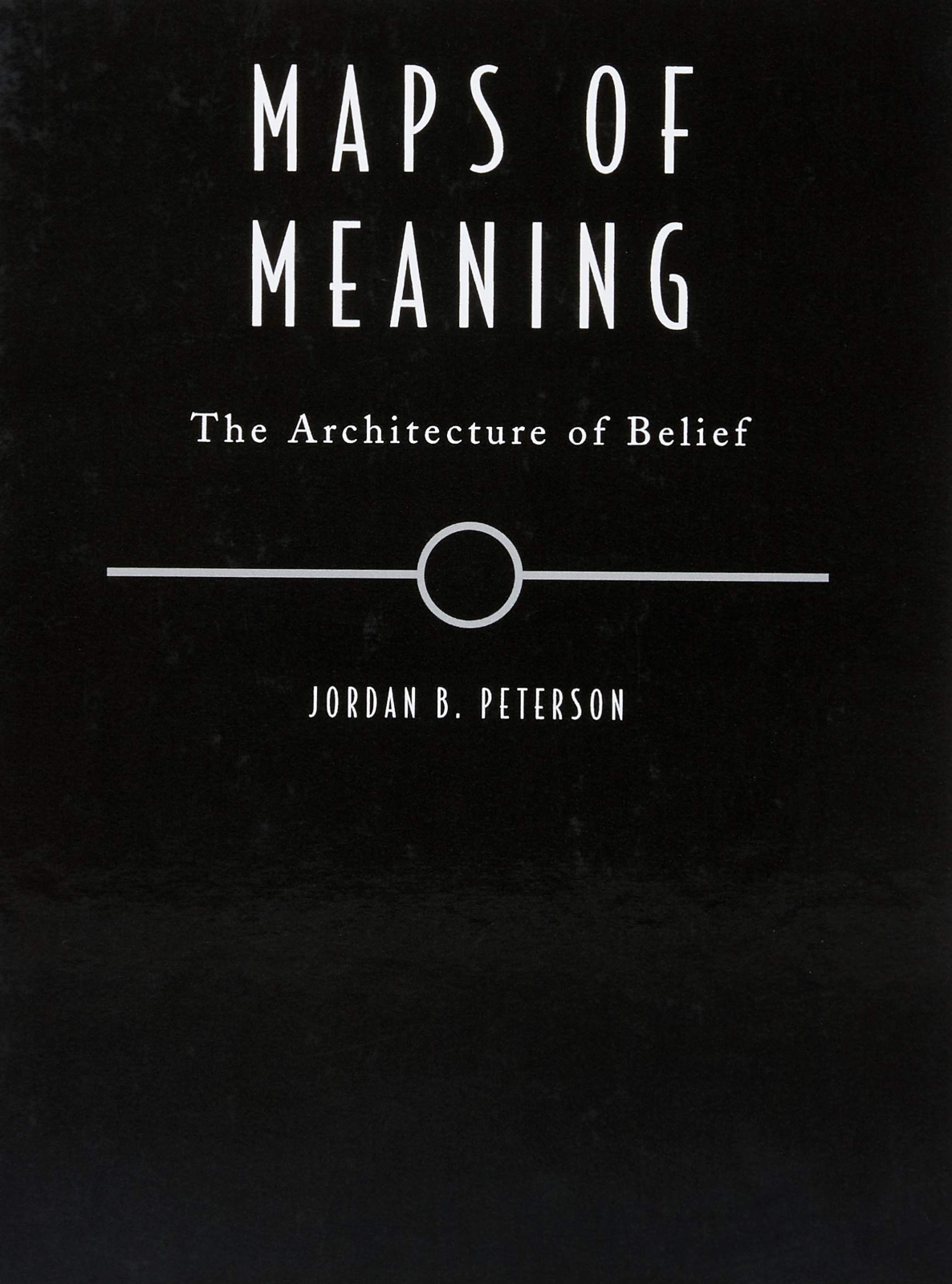
The book “Maps of Meaning" by Jordan B. Peterson is a comprehensive exploration of the psychological and symbolic underpinnings of human belief systems. Peterson examines the role of mythology, religion, and narrative in shaping human understanding and behaviour.
The book dives into topics such as the nature of good and evil, the structure of narratives, and the significance of archetypes. Peterson offers a multidisciplinary approach, drawing from Psychology, Anthropology, and Philosophy to unravel the complexities of meaning-making. “Maps of Meaning” delves deep into the human psyche and invites readers to reflect on the profound influence of belief systems on individual and collective identity.
Wish to help people struggling with stress? Try our Mental Health and Wellbeing Training!
19) The Interpretation of Dreams
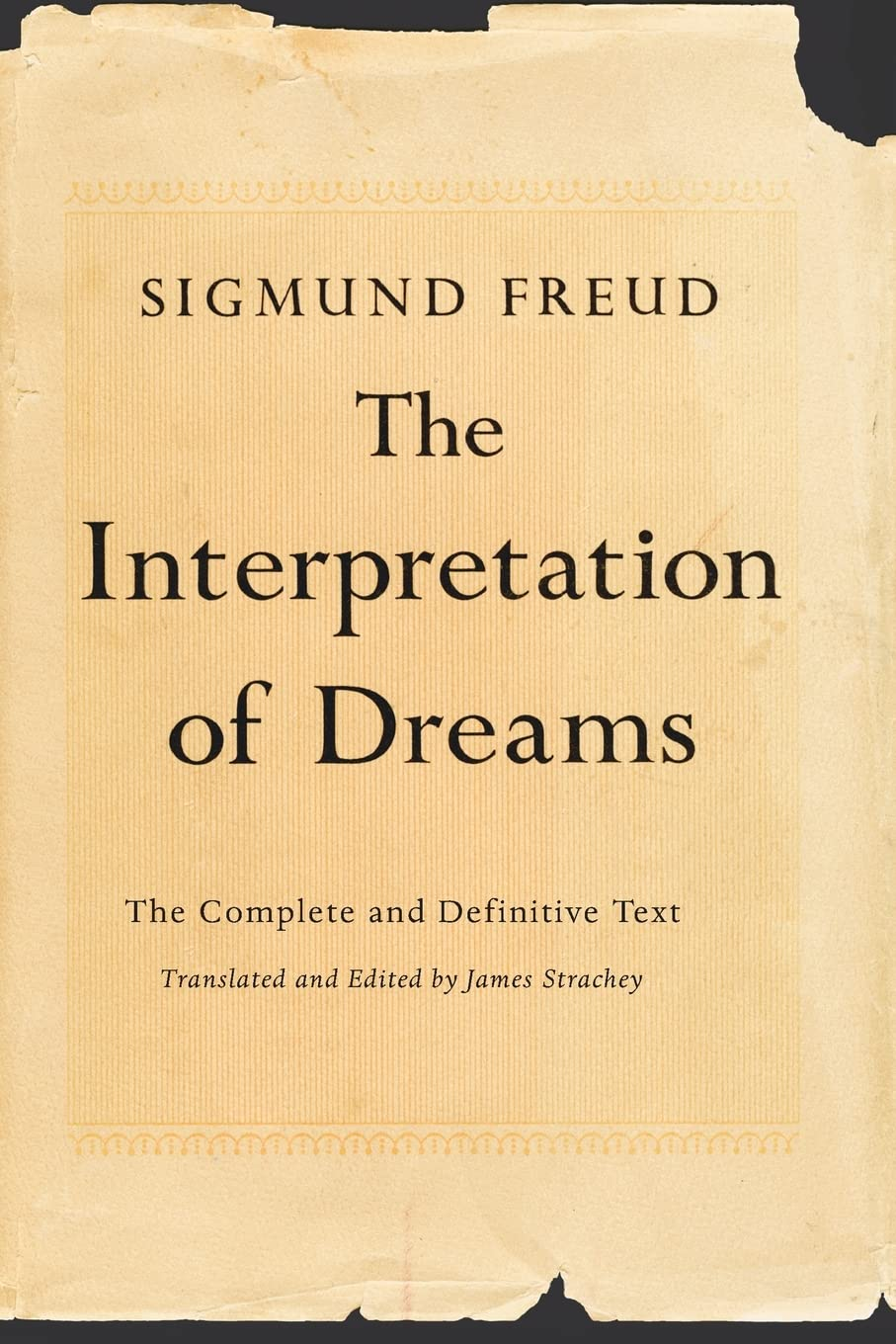
This book by Sigmund Freud is a seminal work in the field of Psychology. Freud explores the significance of dreams and their connection to unconscious desires and conflicts. The book delves into the mechanisms of dream formation, symbolism, and the interpretation of dream content.
Freud proposes that dreams are a window into the unconscious mind and offer insights into the hidden meanings behind dream symbols and narratives. “The Interpretation of Dreams” has revolutionised the understanding of dreams and their psychological significance. Although some of Freud’s theories have been debated and revised over time, this book remains a cornerstone in the field of Psychoanalysis.
20) Daring Greatly: How the Courage to Be Vulnerable Transforms the Way We Live, Love, Parent, and Lead
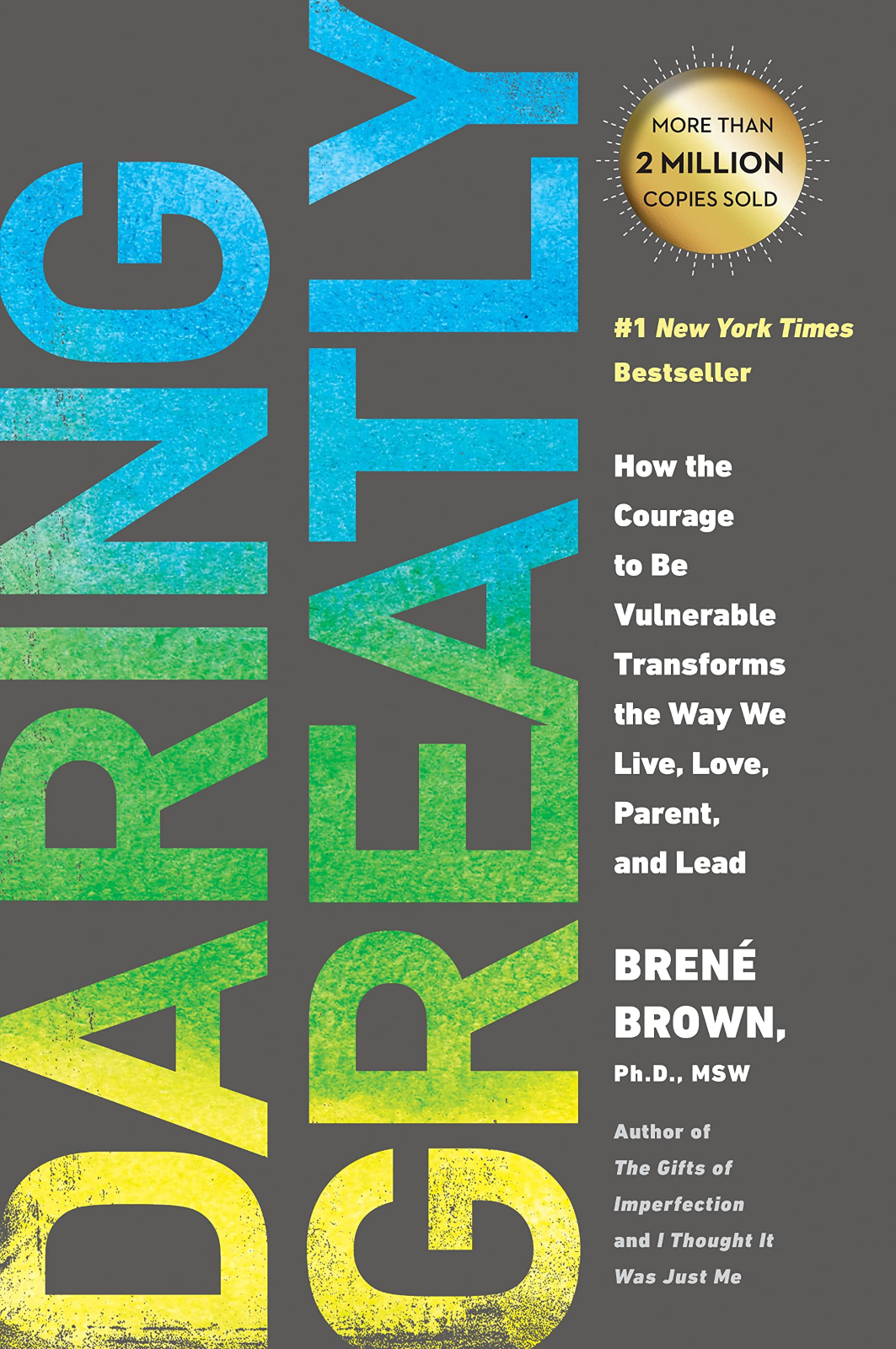
“Daring Greatly” by Brené Brown explores the power of vulnerability and its transformative impact on various aspects of one’slives. Brown challenges the societal perception that vulnerability is a weakness and presents it as a strength that allows for deeper connections and personal growth.
The book deals with topics such as shame, courage, and resilience and offers practical strategies for embracing vulnerability and overcoming the fear of judgment and rejection. Through engaging stories and research findings, Brown encourages readers to cultivate a wholehearted and authentic way of living. “Daring Greatly” provides a compelling argument for embracing vulnerability and unlocking your true potential in relationships, work, and personal development.
21) The Comfort Book by Matt Haig
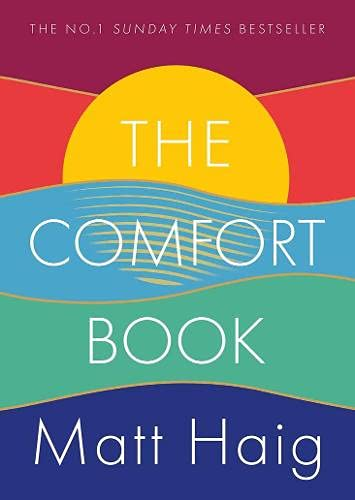
The Comfort Book by English Author and Journalist Matt Haig is akin to the sensation of a warm and affectionate hug. Such an experience is rare to come across even among the best of Psychology Books. If readers are seeking a book that serves as a guidance to the concepts of self-love, contentment and emotional strength, then this book by Matt Haig canoffer them his reflections on the various conflicting sensations that arise with the experience of being and feeling alive.
Furthermore, the book is centered on the idea that many of the best and clearest revelations by individuals occur when they are at their lowest points in life. These points are the moments when they are suffering immensely through a phase, Matt’s reflections in the book are built on the foundation of what he has learned from his difficult times and situations.
Matt especially aims to nurture the inner strength of individuals by discussing about meditation practices and inspirational experiences of other individuals. He wishes to communicate with his readers through his book, with the tone of a wise old friend.
22) The Psychopath Test: A Journey through the Madness Industry
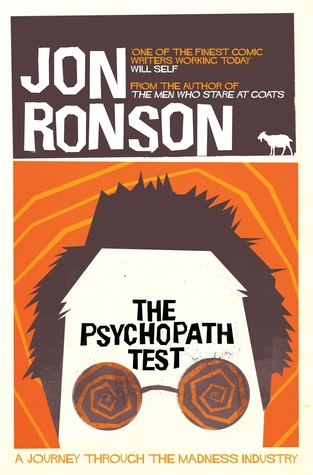
This book by British-American Journalist, Author and Filmmaker Jon Ronson, describes his journey that determines and tests the existence of a psychopathic nature in many leading CEOs and politicians. Additionally, he conveys the story of his visits to such potential psychopaths, Psychologists and Psychiatrists who have devoted their time to study them.
Now ‘The Psychopath Test’ also sheds a light on the process through which psychopaths are medically diagnosed. It also talks about the test designed by Canadian Forensic Psychologist Robert D. Hare. Moreover, Jon Ronson offers many thought-provoking insights into such minds coupled with some stories that would surely pique the interests of his readers.
23) The Personality Brokers by Merve Emre
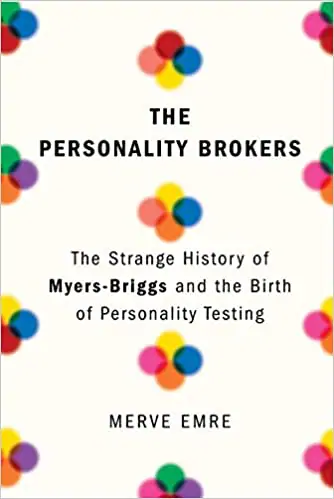
Merve Emre, a Turkish-American Author, Academic and Literary Critic, reveals the origins of the internationally renowned Myers-Briggs Personality Type Indicator Test. The speciality of this Test is that individuals from all walks of life can utilise it to determine their personality type by putting into perspective the various elements that could potentially influence them to be their true selves.
Additionally, the book highlights that Katherine Briggs-Myers and her daughter Isabel Myers designed the Personality Test on the foundation of the questionable principles of Swiss Psychiatrist and Psychoanalyst Carl Gustav Jung. Briggs also claims that she made her first personality test public to Americans at a time when they were ready to receive it, thereby kickstarting the era of writing in the self-help domain.
24) Predictably Irrational, Dan Ariely
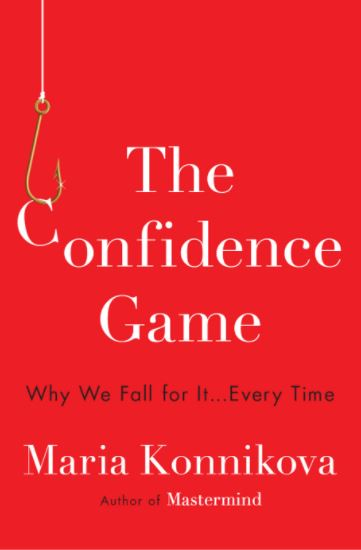
The book by Israeli-American Professor and Author Dan Ariely highlights the role of various factors in controlling people's lives and emotions. The Behavioural Economics expert and Professor from Duke University sheds light on all the invisible factors influencing an individual’s decision-making process.
The book highlights a series of thought-provoking experiments that bring human emotions amidst social norms and expectations to the forefront. Dan further claims that an individual’s bad decisions are never made in a random manner, which explains why so many individuals are indeed ‘predictably irrational’.
25) The Oracle of Night: The History and Science of Dreams by Sidarta Ribeiro
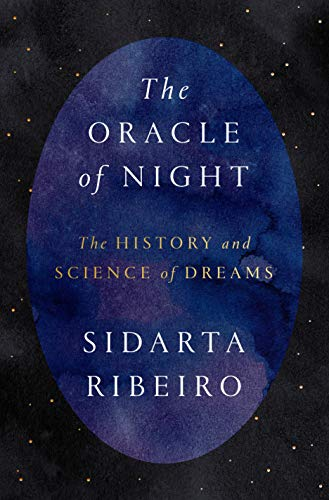
Sidarta Tollendal Gomes Ribeiro, a Brazilian Neuroscientist, explores the questions surrounding dreams: what makes them, why individuals have them and how they affect them. He uses them as a basis for his study of dreams, analysing them back to the ancient ancestors.
With his exploration of the oldest cave paintings depicting the first traces of dreams experienced by human beings, he starts to unlock various revolutionary conclusions surrounding the part played by dreams in the evolution of humans.
Moreover, some readers also discover that contemporary Psychology and Neuroscience have revealed a wide range of findings about human dreams.
‘Oracle of Night’ further describes the advancements in topics, such as the role of dreams in memory recollection and transformation, followed by their distinct nature. The author attempts to couple his authority on the topic with a concise, compelling and clear writing style that makes his book a definite page-turner from start to end.
26) The Happiness Hypothesis by Jonathan Haidt
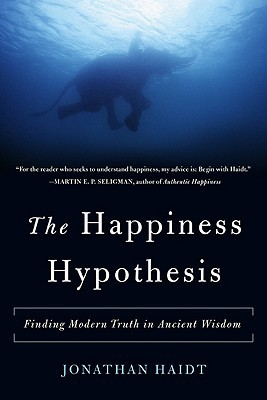
‘The Happiness Hypothesis’, by Americal Social Psychologist and Author Jonathan David Haidt, attempts to analyse how individuals can find happiness in a society of modern times. The book is packed with substantial scientific research, real-world examples and a devised solution for happiness.
Furthermore, this book is recommended to individuals keen to understand the concept of happiness. The book offers a provocative narrative and analyses how traditional wisdom interacts with modern society. The readers can take a few key takeaways from the book, such as the following:
a) Individuals must surround themselves with people whom they love and care the most and live with complete reciprocity.
b) Individuals should also involve their time in work that matters a great deal to them.
c) They can also find a suitable partner who chooses to stand by their side through thick and thin and help them to blossom into a greater version of themselves.
Conclusion
The world of psychology offers vast knowledge and insights into the complexities of the human mind and behaviour. The 20 extremely popular Psychology Books mentioned above cover various topics, including persuasion, decision-making, happiness, addiction, and personal growth. These books provide valuable perspectives and practical tools, allowing you to navigate the intricacies of human experience easily.
Wish to help people struggling with stress? Try our Mental Health and Wellbeing Training!







 Top Rated Course
Top Rated Course




 If you wish to make any changes to your course, please
If you wish to make any changes to your course, please


